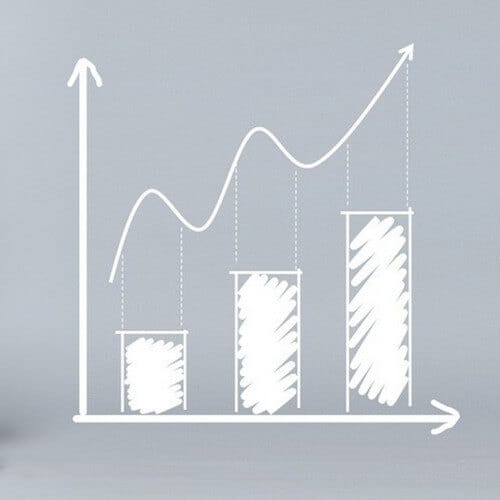Are you considering a personal loan but feeling overwhelmed by the countless options available? Don’t worry! This comprehensive guide will help you navigate the world of personal loans, enabling you to find the perfect “personal loans near me” for your unique financial situation. From exploring local lenders and evaluating loan offers to using your loan responsibly and improving your credit score for better loan options, we’ve got you covered.
Short Summary
- Explore local lenders to find the best personal loan option for you.
- Evaluate interest rates, fees, repayment terms and borrower requirements when considering a loan offer.
- Take proactive steps to improve your credit score and access more favorable personal loans with lower interest rates.
Local Lenders: Explore Personal Loan Options Near You

When searching for an unsecured personal loan, it’s essential to explore all available options, including local lenders. Local lenders, such as credit unions, community banks, and online lenders, can offer a more personalized experience and competitive rates for borrowers with diverse credit histories.
By considering these options, you may find a loan tailored to your needs, whether you’re looking to consolidate debt, finance home improvements, or cover emergency expenses.
Credit Unions
Credit unions are not-for-profit financial institutions owned and operated by their members. As a result, they can offer competitive rates and personalized service, often with lower fees and more flexible terms than traditional banks. To join a credit union, you must meet their field of membership criteria, such as living or working in the credit union’s geographic area.
However, keep in mind that credit unions may have more stringent eligibility requirements and limited services compared to traditional banks.
Community Banks
Community banks are local financial institutions that focus on providing personal loans with an emphasis on local service and support. They often offer competitive rates and terms, making them a viable option for borrowers in need of a loan.
One type of loan offered by community banks is a bad credit home equity loan, which allows borrowers to access the equity they have accumulated in their home at a fixed rate, typically repaid over five to 30 years. This type of loan is best suited for individuals who require substantial funds and have equity in their residences.
Online Lenders
Online lenders offer quick and convenient personal loan options, including unsecured loans, often with competitive rates and flexible terms. However, these lenders may have higher fees compared to credit unions and community banks.
To be eligible for a loan from an online lender, you’ll need to meet specific requirements, such as being at least 18 years old and a U.S. citizen, as well as verifying your identity, employment, income, and bank account. Online lenders typically offer various loan amounts, ranging from $1,000 to $50,000, with applicable origination fees.
Keep in mind that there may be restrictions on how the loan proceeds can be used, such as not using the funds for educational expenses or gambling.
Evaluating Personal Loan Offers: What to Look For

To ensure you make the best financial decision for your individual circumstances, it’s crucial to evaluate personal loan offers thoroughly. This involves considering interest rates, fees, repayment terms, and borrower requirements. By understanding these factors, you can compare loan offers and determine which one best suits your needs.
Keep in mind that extending repayment terms may lead to increased overall interest paid, while reducing repayment periods may result in higher monthly payments.
Interest Rates
Interest rates play a significant role in determining the overall cost of a personal loan. They dictate the rate of interest that will be charged on the loan, which ultimately affects your monthly payments and total interest paid. To compare interest rates among different lenders, consider the Annual Percentage Rate (APR), which encompasses the interest rate and any additional fees.
By contrasting interest rates among diverse lenders, you can locate the most suitable loan for your requirements.
Fees
In addition to interest rates, it’s essential to consider the fees associated with personal loans, as they can impact the total cost of borrowing. Common fees include origination fees, application fees, and sometimes flat-rate fees. An origination fee usually ranges from 1% to 6% of the loan amount, while application fees cover the costs of processing and reviewing the loan application.
Be sure to carefully review the loan’s terms and conditions to understand all the fees involved.
Repayment Terms
Repayment terms are another vital aspect to consider when evaluating personal loans. Loan terms typically range from two to seven years, but can be as short as twelve months or as long as sixty months. The flexibility of the repayment schedule is also important, as it can impact your monthly payments and overall financial situation.
Personal loans, including secured loan options, often allow borrowers to make additional payments or pay off the loan early without incurring any penalties. This can be a great way to save money on interest and pay off the loan faster, especially when using personal loan funds wisely.
Borrower Requirements
Finally, consider the borrower requirements set by the lender, such as credit score, proof of identity, proof of income, and a favorable debt-to-income ratio. The minimum credit score requirement for personal loans can vary depending on the lender, but typically ranges from 600 to 700.
By meeting these requirements, you increase your chances of being eligible for a personal loan and obtaining better loan terms and interest rates.
Using Your Personal Loan Responsibly

Utilizing a personal loan responsibly is crucial for maintaining a positive financial reputation and improving your credit score. Some of the optimal methods of using a personal loan include consolidating high-interest debts, financing home improvements, and addressing emergency expenses.
By selecting a personal loan for the right reasons and ensuring you can meet the repayment terms, you can make the most out of your borrowing experience and pave the way for future financial success with fully amortizing personal loans.
Debt Consolidation
One responsible way to use a personal loan is for debt consolidation. Debt consolidation involves combining multiple debts, such as credit card bills or loan payments, into a single loan or monthly payment with a reduced interest rate. This can help simplify repayment and potentially reduce interest rates, easing your financial burden and allowing you to focus on repaying the loan more efficiently.
By consolidating your debt, you can make a single payment each month, which can help you consolidate your debt.
Home Improvement Projects
Another responsible use of a personal loan is for home improvement projects. Investing in home improvements, such as remodeling, landscaping, or energy-efficient upgrades, can increase the value of your home and potentially provide tax benefits.
When considering a personal loan for home improvement projects, research lenders, compare loan offers, and calculate the total cost of the loan to ensure it’s the right choice for your needs.
Emergency Expenses
Lastly, having a personal loan available for emergency expenses can be a financial lifesaver. Emergency expenses, such as medical bills, car repairs, or home repairs, often arise unexpectedly and can be difficult to cover without resorting to high-interest credit card debt. By using a personal loan to address these expenses, you can avoid accumulating more debt and focus on repaying the loan in a timely manner.
Having a personal loan available can help you manage unexpected expenses and avoid accumulating more debt. With that in mind.
Improving Your Credit Score for Better Personal Loan Options
Improving your credit score is essential for accessing better personal loan options, as it can lead to lower interest rates and more favorable loan terms. To improve your credit score, focus on reviewing your credit report, reducing debt, and establishing a positive payment history. By doing so, you’ll increase your chances of qualifying for a better personal loan and set yourself up for long-term financial success.
Reviewing Your Credit Report
Regularly reviewing your credit report is crucial for identifying and correcting any errors that may negatively impact your credit score. You can request a copy of your credit report from one of the three major credit bureaus: Experian, Equifax, and TransUnion.
If you find any errors in your credit report, contact the credit bureau to dispute the information and request correction, as this can improve your credit score.
Reducing Debt
Focusing on reducing your overall debt can also improve your credit score. This includes paying off high-interest debt first, consolidating debt, and creating a budget to manage your finances more effectively.
Reducing debt not only helps improve your credit score, but also increases your financial stability and overall well-being.
Establishing a Positive Payment History
Establishing a positive payment history is another essential step in improving your credit score. By consistently making on-time payments for all your debts, including credit cards, loans, and other financial obligations, you demonstrate reliability and responsibility in the repayment of debts, which in turn positively impacts your credit history and credit scores.
To maintain a positive payment history, pay your bills punctually, monitor your spending, and address any debts promptly.
Summary
In conclusion, finding the right personal loan for your unique financial situation involves exploring local lenders, evaluating loan offers, using loans responsibly, and improving your credit score. By following the guidance provided in this comprehensive guide, you’ll be equipped to make informed financial decisions and pave the way for a brighter financial future.
Frequently Asked Questions
It is possible to borrow money with a 500 credit score; however, you should expect lenders to impose additional criteria, such as a minimum income or employment history. Be sure to inquire about fees and interest rates before taking out a loan.
For a personal loan, consider credit unions, community banks, and online lenders.
These institutions offer competitive rates and terms, and they may be more willing to work with you if you have a lower credit score.
Compare lenders by looking at their Annual Percentage Rate (APR) to get a comprehensive view of their interest rate and any additional fees.
Look at the APR to get a better understanding of the interest rate and any additional fees that may be associated with the loan. This will help you make an informed decision when choosing a lender.
